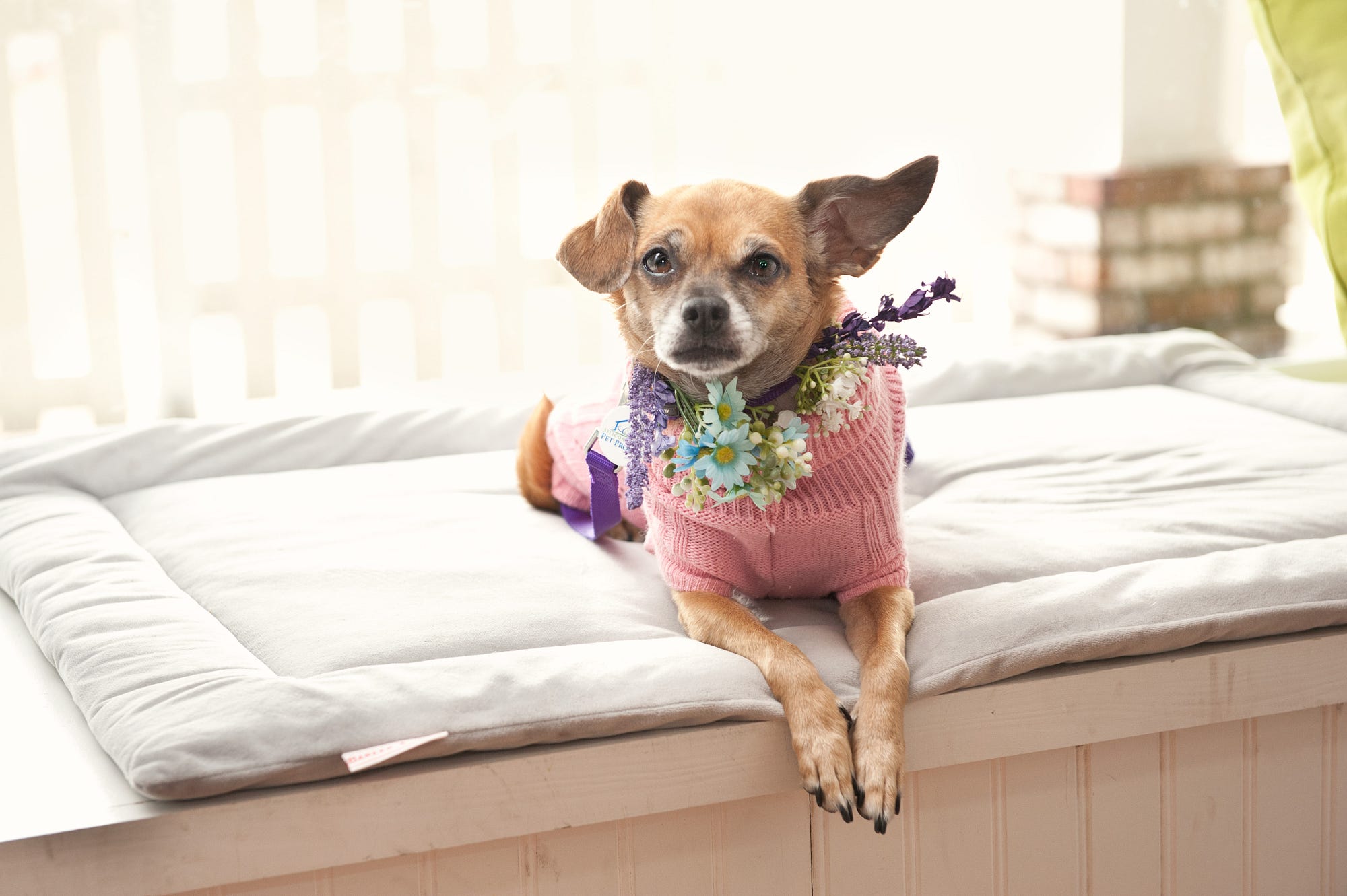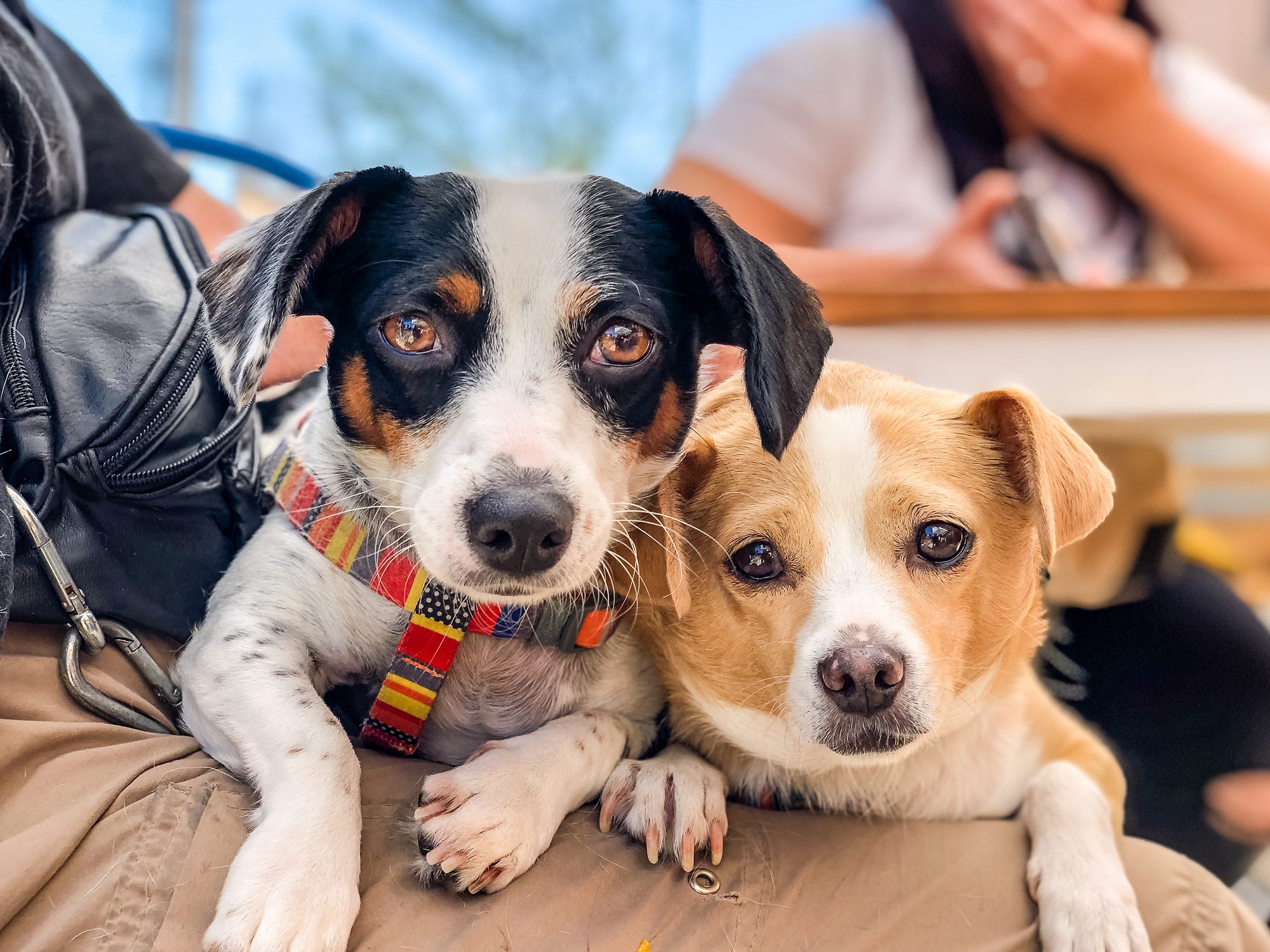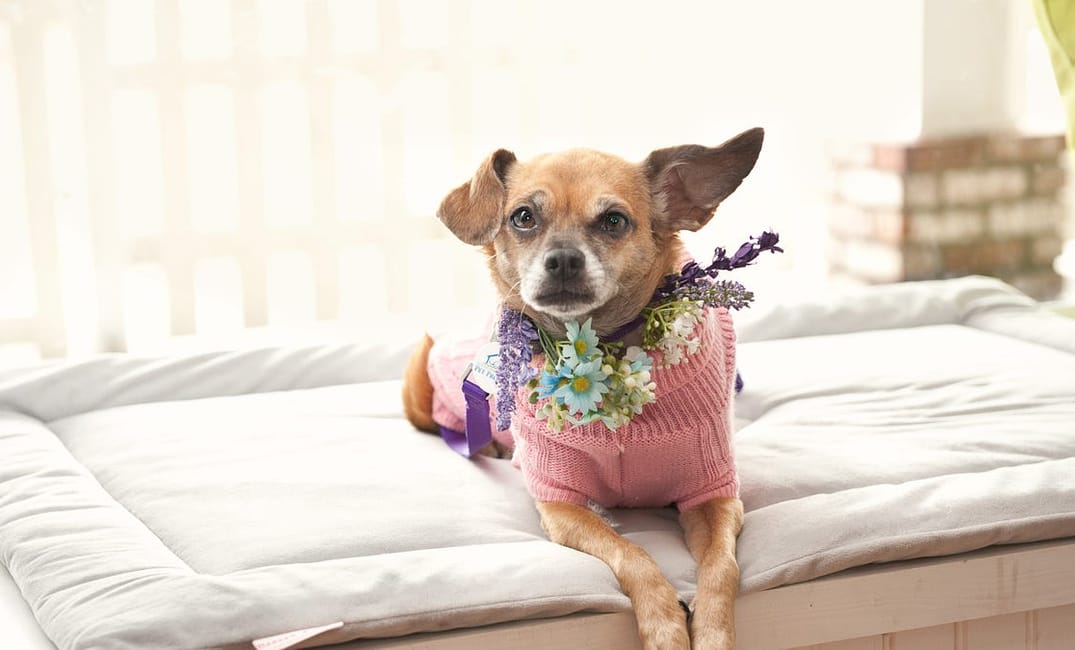
The extreme underbite. The skinny torso. Their famed ability to be inserted into high-end handbags. The abundance of Chihuahuas was one of the first things to stand out when my family and I moved to Los Gatos from the United Kingdom last August. Knowing no one, we spent hours in local parks and playgrounds, airing our small children. Fascinated by the little dogs they saw — some wearing dresses or bow ties — my boys were always asking me why Americans took their cats for walks.
At home in the U.K., I don’t think we ever saw a Chihuahua. Where we lived in Brighton, it was all about the cockapoos, the labradoodles, the schnoodles, and the cavapoos. Every dog looked like an expensive, bouncy teddy bear.
As we explored our options for finding a rescue dog here, it became clear that the tiny Chihuahua is indeed massive. Follow any local dog rescue organization, and sad little Chi faces will haunt you across social media, looking for their forever homes. A search on the website Petfinder within 50 miles of San Francisco shows a whopping 328 Chihuahuas or Chi mixes (compared to 129 German shepherds, 172 Labradors, and 306 pit bulls).
“The darker side of the Chihuahua’s rise to Hollywood fame and fortune, though, was that they were presented more as accessories than as dogs.”
This is a relatively recent trend, according to Martha Cline from the Power of Chi rescue organization in Oakland. She says that 15 years ago, when she started working in rescue organizations, it was so rare to get a Chihuahua (or really any small-breed dog) that if one was brought in everyone would rush out to the front desk to have a look.
Meanwhile, the Chihuahua was having a cultural moment. The Taco Bell ads in the late 1990s featured Gidget, a plucky Chihuahua with a penchant for Crunchwrap Supremes. In 2001 came Legally Blonde, in which Reese Witherspoon’s character, Elle Woods, took her fashionably attired Chihuahua, Bruiser, along to her lectures at Harvard Law School. Celebrities including Paris Hilton and Britney Spears were regularly photographed with Chihuahuas in their handbags.

Melissa Lisbon, CEO of the Silicon Valley Pet Project, says this gave the breed some much-deserved attention. Lisbon feels that Chihuahuas are a fantastic option for local, urban would-be dog owners.They are affectionate, portable, and low-maintenance compared to bigger dogs.
“A lot of dogs have in their DNA that they are hunters or protection dogs, and they were bred for those purposes,” said Lisbon. “What I find wonderful about Chihuahuas is that they are really just love bugs. They are small, they are snugglers, they are great companions, and very loyal to their people. They are also the quintessential California dog. They love the sun, they are optimistic, they get along with everyone.”
The darker side of the Chihuahua’s rise to Hollywood fame and fortune, though, was that they were presented more as accessories than as dogs, and often bought by people who didn’t have much idea of the responsibilities of pet ownership. Some of these inexperienced owners couldn’t meet the dogs’ needs for exercise and socialization, and they often didn’t have them spayed or neutered. Lisbon says that unscrupulous and unlicensed backyard breeders also rushed to profit from the Chihuahua’s new desirability, leading to overbreeding.
Many of us have heard Chihuahuas described as yappy and nippy; you might be wondering if this has contributed to their high profile in local shelters. Cline says that this is, in fact, pretty unfair. The problem is that when you put a dog in a handbag or pick it up constantly, you stop it interacting with other dogs and other people. This human behavior teaches the animal that her beloved owner perceives danger and may need her protection — hence some defensive nipping of unwary strangers.
When treated like a human baby, a Chihuahua unsurprisingly doesn’t learn key doggie skills.
“They can learn like any other dog,” Cline said. “The ones I foster haven’t been trained to sit, walk on a leash, go up and go down stairs… so we do a mini boot camp in the basics. When treated like a dog, the Chihuahua behaves like a dog, and is generally great with people, other dogs, cats, and children.”
The proliferation of abandoned Chihuahuas also speaks to the economic and social issues of the area. Cline says that families struggling with the high cost of living and housing insecurity understandably struggle to meet their dogs’ needs.
“You work a couple of jobs, you have a couple of kids, you have to pay for transportation; you’re not going to spend $300 to get your Chi fixed,” she said.
It’s fairly disturbing that our dog ownership is so much a question of fashion, when the ripple effect of this on animals is so sad.
What’s to be done? Cline says that at the heart of this problem are low rates of spaying and neutering. Animal centers are doing their best to promote these services on limited funding. San Jose Animal Care Center offers low-cost spay/neuter, free to certain zip codes, in partnership with the Humane Society of Silicon Valley. East Bay SPCA offers lower cost spay/neuter, with discounted rates for Chihuahuas and pit bulls. Periodically, local shelters have offered free or “name your price” Chihuahua adoptions. But everyone I talked to agreed that more affordable spay/neuter services are needed to tackle the problem.
Rescues are doing their level best to educate dog owners and to help people understand the breed that will best suit their lifestyle.
“I tell people to treat their small dog like it’s a dog. It’s not a child. You can love it like a child, but you need to encourage its confidence and independence,” Cline says.
It’s fairly disturbing that our dog ownership is so much a question of fashion, when the ripple effect of this on animals is so sad. Both Cline and Lisbon told me that the new dogs they are seeing coming into local shelters is the husky, riding on a wave of Game of Thrones dire wolf fame. And if the Chihuahua presented challenges to the less experienced owner, the husky, bred to spend its days pulling sleds across ice and snow, will be a whole new ballgame.
My family still hasn’t found our perfect rescue match. I’m now much more open to the Chi mixes — it’s hard to argue with a lower-cost, loving dog that’s equally happy on a family hike or snuggling on the couch. I’ll just have to convince the boys that they’re not cats.







